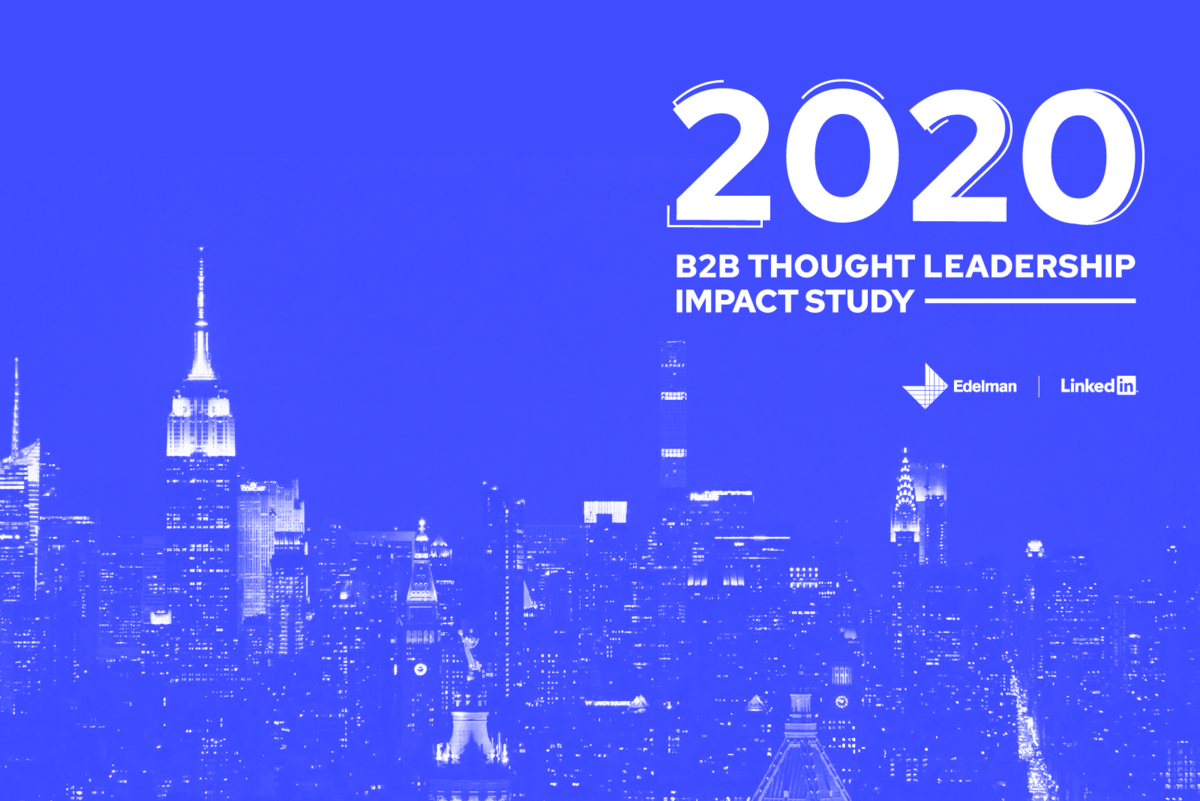One of the big takeaways from this year's B2B Thought Leadership Impact Study is that it's getting harder to make a good impression on customers.
Only 32 percent of business decision-makers surveyed by Edelman and LinkedIn say they reliably gained valuable insights from consuming thought-leadership content. This is down from 39 percent in 2018. Further, nearly a third of the survey group (29 percent) said they now believe that most of what they consume is less than mediocre
So why is this happening? Part of the challenge is the macro environment.
Political news coverage in 2019 was viewed nearly three times as much as business journalism according to our analysis of Parsely data, which covers 3,000 U.S. news sites. The political climate is choking off the attentional air supply of many stories — even great ones. With content infinite and attention finite, everyone is fighting for the same space.
However, I also think some communicators may be giving up too soon. They aren't giving their employees ample time and space to think and, above all, to ask good questions.
The payoff can be significant if they are patient. The decision-makers we surveyed still see the value in thought leadership. They said it can positively influence their purchasing behaviors in terms of issuing RFP invitations (39 percent), awarding business (49 percent) and purchasing new products/services they hadn’t previously considered (51 percent).
Like most everything in business these days, I believe success starts with having a strong culture that supports thinking as well as doing. But it also requires a commitment to seeing things through. Some 51 percent of producers creating thought leadership for 21+ years believe their efforts are good or excellent in quality. This is higher than any other group of creators we surveyed who have been at it for less time.
For the last 14 years I have been lucky to see both the power of patience combined with a commitment to investing in deep thinking here at Edelman — a company that walks our talk.
In my own work, I am freed up to think. This is unusual in a service company. Much of my time is spent on research to unearth actionable insights about the state of the media landscape and on gaining internal alignment on what these changes mean for our clients. Having space to think helps me and others counsel clients on how to navigate change and create new types of communications programs.
More broadly, however, you can see this commitment in our intellectual property including this B2B study and our renown Trust Barometer. These are Herculean efforts that necessitate a major investment in time and energy. We have a dedicated team of people who work on these year-round. Some have been collaborating on these for many years.
Over the years, I have seen some of our clients make similar commitments too.
Long-term thinking isn't always in vogue in a fast-twitch world. However, our own experience and research shows that patience, and above all, a commitment to creating the space necessary to ask and answer big questions can pay off.
Imagine if more companies did the same.
Steve Rubel is Chief Media Ecologist.




